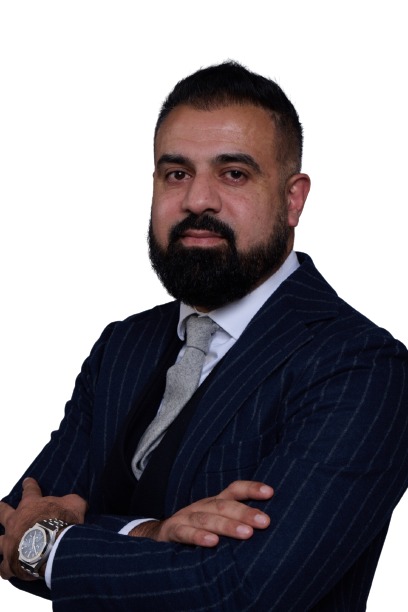If you have been charged with a drink driving offence, why not get the specialist Drink Driving Lawyers with a proven track record of 87 to 96% success in helping their clients to keep their driving licence on your side?

Whether you intend to plead guilty or not guilty, our dedicated lawyers will provide you with the best advice and defence.
With a success rate of at least 87%, you could not be in safer hands.
Please call us on 033 03411690 or make a Free Online Enquiry for immediate assistance. All enquiries are completely confidential.
“Abdul was a lifesaver after a run in with a few solicitors offering hidden case fees. It was straightforward and fairly smooth. I am extremely happy with the outcome.”
Why Parnell and Peel Solicitors?
At Parnell and Peel Solicitors, we understand how daunting it is to face a drink driving charge. Going to court is not something most people are used to. Along with this anxiety, there is the worry that your driving record will be tainted with a drink driving conviction or that you could lose your licence. Undoubtedly, this will significantly impact your life and may even result in you losing your job.
If you have recently been charged with a drink driving offence, our solicitors are here to help you. We will use our decades of knowledge and expertise to get the best possible outcome in your case. You might think pleading guilty is your only option, believing there’s no way to avoid a conviction. However, we have the skills to challenge and win seemingly open and shut cases.
Our Results
Our skilled solicitors are experienced in handling motoring complex offences and have an excellent track record. We have successfully defended 87% of the drink driving cases we've handled, with some cases exceeding even this strong success rate, as highlighted below:

Even if you think there is no chance of winning, we know what tactics to use to your advantage.
We've often achieved results far better than our clients anticipated.
We do this because we understand just how important your driving licence is, for you, for your job, career or business, and for your family and friends.
We will do all that we can to help you keep your licence, so please do not delay, call us now on 033 03411690 or make a Free Online Enquiry and let us take the strain from hereon in.
“I was arrested for serious sexual assault. It was malicious and out of spite. Parnell were great and the barrister made an application in court and all charges were dismissed.”
“Very helpful and on the ball. Thank you.”
How to Avoid or Minimise a Drink Driving Conviction or Disqualification
Whether this is your first offence or you’re simply looking for clarity on the legal process, explore this article for insights on the consequences of drink driving and how to reduce them.
Drink Driving Penalties
If you’re facing a charge of drink driving, a conviction could result in the following consequences:
- A criminal record.
- An unlimited fine (the courts can impose unlimited fines up to a maximum of £5000).
- Mandatory minimum 12-month driving ban (three years if you have been convicted twice in 10 years).
- An endorsement on your licence for 11 years.
- Up to six months in prison (this is unlikely for first-time offenders but may apply in severe cases).
The impact of these penalties can be far-reaching. They can lead to financial hardship, strained relationships, and even job loss, especially if your role involves operating a vehicle.
Is Drink Driving an Instant Ban?
Yes, a drink driving conviction results in a mandatory driving ban of at least 12 months. The length of the ban depends upon the level of alcohol detected in your system at the time of the offence – higher alcohol readings result in longer bans. If convicted twice in 10 years, the courts may extend the ban to a minimum of three years.
However, the ban is imposed at a court hearing, not from the day of arrest or charge. Until you are convicted, you can continue driving.
Can You Get Off a Drink Driving Charge?
Drink driving is a criminal offence detailed in Section 5 of the Road Traffic Act 1988. The Act states that it’s illegal to drive or attempt to drive a vehicle while over the legal alcohol limit. These limits are:
- Breath: 35 micrograms of alcohol per 100 millilitres of breath
- Blood: 80 milligrams of alcohol per 100 millilitres of blood
- Urine: 107 milligrams of alcohol per 100 millilitres of urine
These limits are clearly defined, so if the police find you driving with excessive alcohol in your system, your defence options are limited – although not impossible. Below, we explore potential ways to challenge a drink driving charge or reduce the penalties.
1. Defend the Charge
The most effective way to avoid a drink driving conviction is to demonstrate that you are not guilty. After all, you have a legal right to challenge the evidence and charges. If you build a strong case and prove you are not guilty, you can walk away without a single penalty.
Before contesting a drink driving charge and taking your case to trial, seek advice from an experienced motor offence solicitor. A specialist will thoroughly review your case, scrutinise the evidence, strategise the best approach, and present compelling arguments in your defence. Even if you were over the legal limit during the initial police stop, a skilled solicitor who understands the complexities of drink driving law may still be able to challenge the case against you. For example, they may use technical defences, such as:
- Questioning the reliability of breathalysers and other testing equipment.
- Reviewing if the police conducted themselves correctly.
- Checking for procedural errors that could invalidate the evidence.
Are you interested in learning more about this approach? Visit our dedicated Drink Driving page to explore technical defences in detail.
2. Plead Guilty But Present Special Reasons
If you decide to plead guilty at the court hearing, you will receive a conviction against your record. However, you may still be able to reduce or even avoid a driving ban by presenting ‘special reasons’. These are extenuating circumstances that explain why you found yourself in that situation. These reasons could include:
- You were driving away from danger
- You had a medical emergency
- Your drink was spiked without your knowledge
While this isn’t a defence, and you will still plead guilty to driving over the limit, it could mitigate or prevent the driving disqualification many drivers fear. Again, it’s best to consult a skilled motor offence lawyer to present your ‘special reasons’. The court is notoriously strict and must be satisfied that you had no reasonable alternative but to drive.
3. Take A Rehabilitation Course
If you are convicted of drink driving and receive the dreaded driving disqualification, there is still hope. Sometimes, the courts offer a drink driving rehabilitation course to reduce your ban by up to a quarter. However, there are a few things to keep in mind:
- The course can cost up to £250, and you must pay for it yourself.
- You must complete the course within a set timeframe.
- You must decide whether to take the course in court – and you can’t change your mind later.
A rehabilitation course won’t remove your conviction but could get you back on the road sooner.
Secure the Legal Expertise of Parnell and Peel Solicitors
Worried about a conviction or drink driving ban? We understand how overwhelming this situation can be and are here to help. At Parnell and Peel Solicitors, we have a proven history of assisting clients to retain their licences – even when they thought all hope was lost. Review our testimonials and case studies to learn more about the excellent results we’ve achieved.
Speak with our legal team today and start working towards the best possible outcome for your case. Simply call 033 03411690 or make a free online enquiry. All communications are completely confidential, and you’re not obligated to continue with our services.


